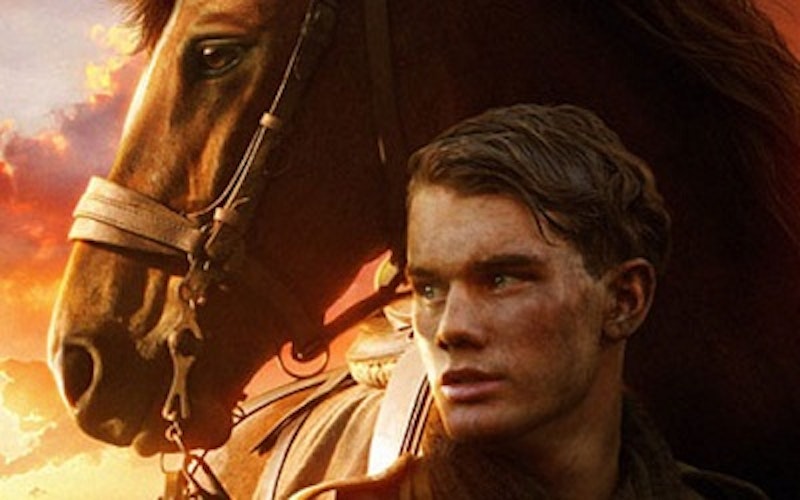
Music
'War Horse' and returning soldiers
I have my problems with Steven Spielberg's "War Horse" (the first third in particular, which has way too much inspirational plowing). Yet in its consideration of the brutalities of war and the scars left on home-bound soldiers, the movie is of vital, timely importance - for the United States as a whole and Gospel-following Christians in particular.
The story is told mostly through the eyes of Joey, a horse that is drafted into the English cavalry in World War I and spends that conflict passing through the hands of various owners, eventually ending up in the hellish trenches of France. In the way it views humanity's folly through the eyes of an animal, "War Horse" recounts one of the great films of all time: "Au Hasard Balthazar." Yet it's also very much of today. Released in the same month that the last American soldiers left Iraq, "War Horse" is about the life-defining experience of leaving young innocence behind to engage in senseless violence, to survive out of sheer luck and then come home again - alive, but deeply changed.
We usually don't like to talk about such experiences. Indeed, when Think Christian ran an article last month by a former armed forces chaplain about the ways churches should receive returning soldiers, the story had far-below-average page views and not a single comment. This, along with America's history of ignoring (if not villifying) returning soldiers, left me dispirited. Jesus welcomed the weary and burdened; shouldn't we count returning soldiers among them?
Perhaps a major movie being sniffed by Oscar will help to force this conversation. Which brings me back to what I do appreciate about "War Horse." The picture is at its most artful in its darkest moments: a military execution, partly obscured by the mercifully sweeping arm of a windmill; a cavalry of horses jerking their heads up in unison at the sound of a single, lethal shot; a climactic reunion in silhouette, in which the ostentatiously red sunset isn't there to warm our hearts, but to remind us that this has been a tale of both balm and blood.[[pullquote]]
In other words, "War Horse" is honest, not sentimental, about the cost of armed conflict. As honest, in fact, as was another veteran of World War I's trenches, C.S. Lewis. In a letter, Lewis wrote this about his war experience:
My memories of the last war haunted my dreams for years. Military service, to be plain, includes the threat of every temporal evil; pain and death, which is what we fear from sickness; isolation from those we love, which is what we fear from exile; toil under arbitrary masters, which is what we fear from slavery: hunger, thirst, and exposure which is what we fear from poverty. I'm not a pacifist. If it's got to be it's got to be. But the flesh is weak and selfish, and I think death would be much better than to live through another war.
Even worse? Living through one, coming home and not having your weariness and burdens shared by Christians who care.
(Image courtesy of DreamWorks.)
Jesus welcomed the weary and burdened; shouldn't we count returning soldiers among them?
Topics: Movies, Culture At Large, Arts & Leisure, News & Politics